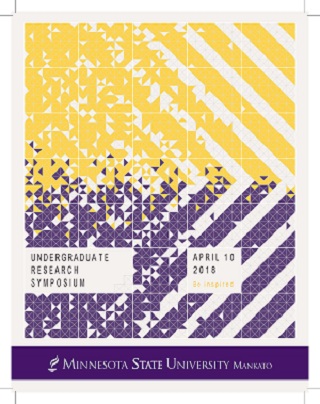Impact of Service Learning on Inter-Cultural Competence of Pre-Service Teachers
Location
CSU 203
Start Date
10-4-2018 10:00 AM
End Date
10-4-2018 11:00 AM
Student's Major
Elementary and Early Childhood Education
Student's College
Education
Mentor's Name
Elizabeth J. Sandell
Mentor's Department
Elementary and Early Childhood Education
Mentor's College
Education
Description
The population of the U.S. is becoming increasingly diverse in language and culture. And, the population of students in elementary and secondary schools is becoming more diverse. Pre-service teachers (PSTs) must experience and understand other cultures in order to become more inter-culturally competent (ICC). According to Hammer & Bennett (2010), ICC is "the capability to accurately understand and adapt behavior to cultural differences and commonality.” One way to do this is for PSTs to participate in Service Learning. According to the National Service-Learning Clearinghouse (NSLC), service learning is “a teaching and learning strategy that integrates meaningful community service with instruction and reflection to enrich the learning experience, teach civic responsibility, and strengthen communities (NSLC, 2012). This study responded to the question: Do different types of Service Learning have different impacts on changes in inter-cultural competence of pre-service teachers? The data set included more than 800 students who took the general education course, Human Relations in a Multicultural Society. Students completed the Intercultural Development Inventory (IDI) at the beginning and at the conclusion of the semester (Hammer, Bennett, & Wiseman, 2003). Service Learning opportunities included 18 hours of volunteer work at organizations such as residences for disabled adults, English language tutoring of immigrants, home visits with children of new immigrants, and others. This general education course had a statistically significant impact on participants' ICC. However, data analysis found no statistically significant differences in ICC as a result of various Service Learning opportunities.
Impact of Service Learning on Inter-Cultural Competence of Pre-Service Teachers
CSU 203
The population of the U.S. is becoming increasingly diverse in language and culture. And, the population of students in elementary and secondary schools is becoming more diverse. Pre-service teachers (PSTs) must experience and understand other cultures in order to become more inter-culturally competent (ICC). According to Hammer & Bennett (2010), ICC is "the capability to accurately understand and adapt behavior to cultural differences and commonality.” One way to do this is for PSTs to participate in Service Learning. According to the National Service-Learning Clearinghouse (NSLC), service learning is “a teaching and learning strategy that integrates meaningful community service with instruction and reflection to enrich the learning experience, teach civic responsibility, and strengthen communities (NSLC, 2012). This study responded to the question: Do different types of Service Learning have different impacts on changes in inter-cultural competence of pre-service teachers? The data set included more than 800 students who took the general education course, Human Relations in a Multicultural Society. Students completed the Intercultural Development Inventory (IDI) at the beginning and at the conclusion of the semester (Hammer, Bennett, & Wiseman, 2003). Service Learning opportunities included 18 hours of volunteer work at organizations such as residences for disabled adults, English language tutoring of immigrants, home visits with children of new immigrants, and others. This general education course had a statistically significant impact on participants' ICC. However, data analysis found no statistically significant differences in ICC as a result of various Service Learning opportunities.
Recommended Citation
Brito Lino, Yuseina and Andrea Faye Aguila. "Impact of Service Learning on Inter-Cultural Competence of Pre-Service Teachers." Undergraduate Research Symposium, Mankato, MN, April 10, 2018.
https://cornerstone.lib.mnsu.edu/urs/2018/oral-session-03/1




